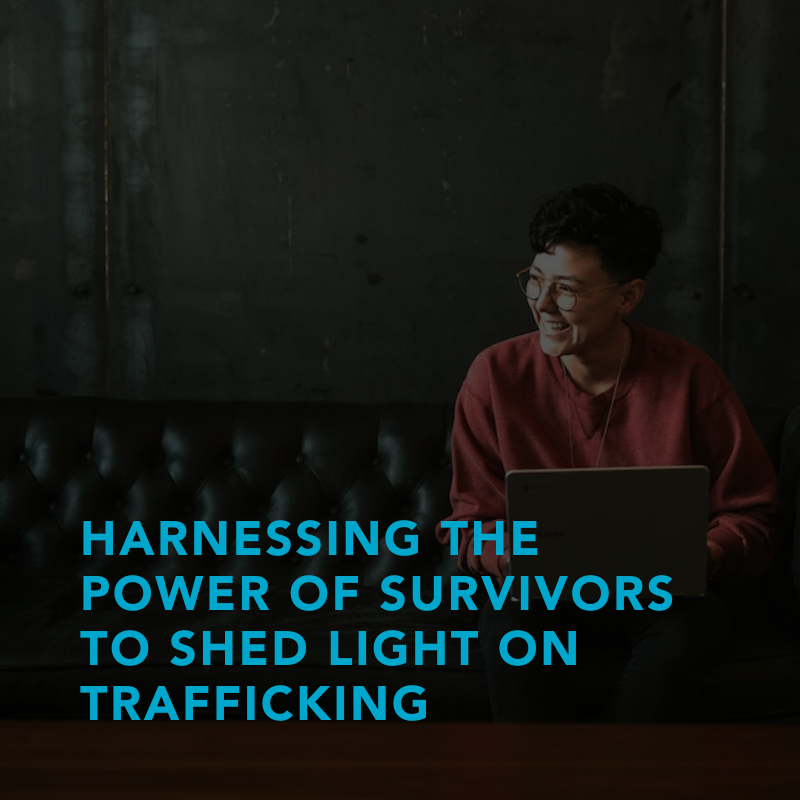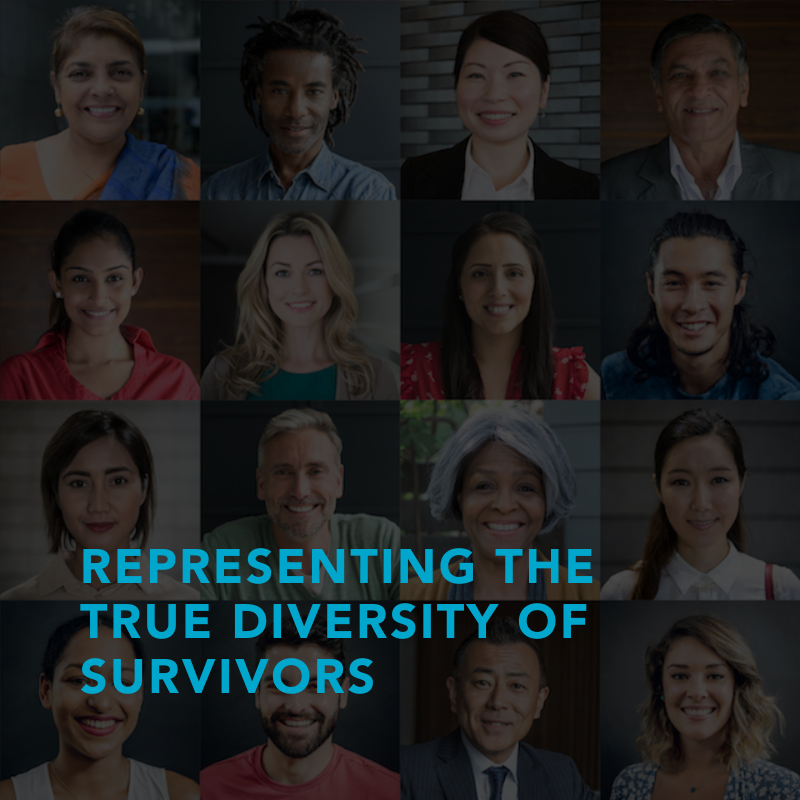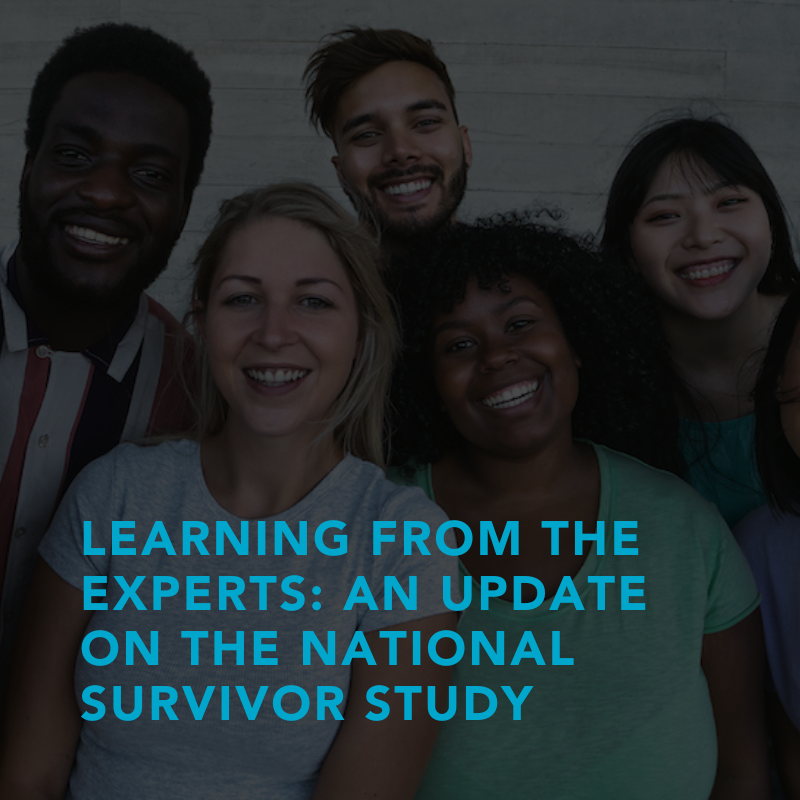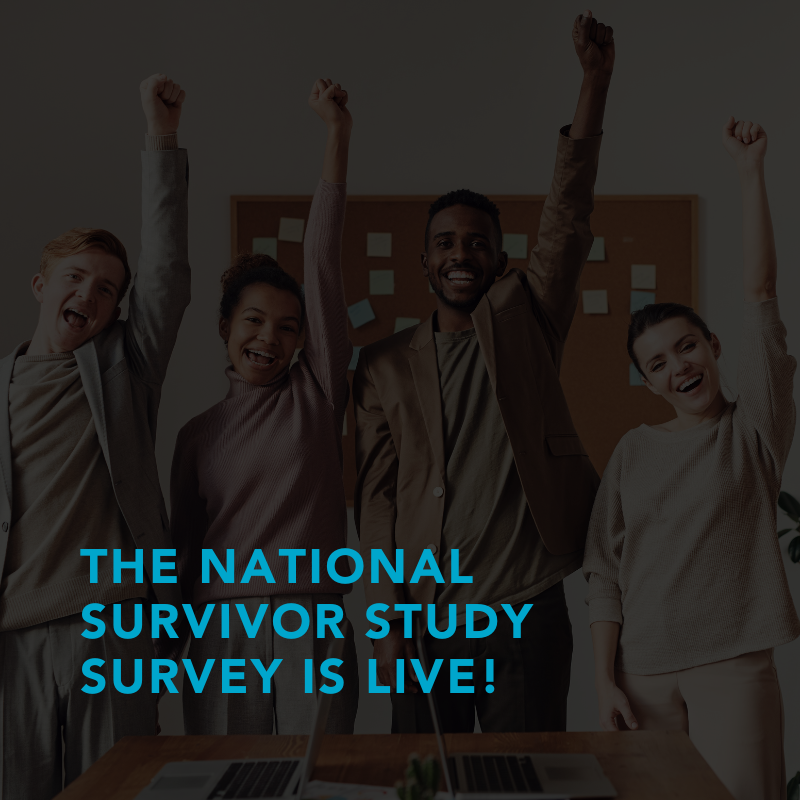Making Survivor Voices Heard
For more than a decade, through operation of the U.S. National Human Trafficking Hotline, we have built, used and shared the largest known data set on trafficking in North America. This pioneering work is now being expanded and deepened through the National Survivor Study (NSS), a scientifically rigorous research project developed in full partnership with survivors of human trafficking to gain insights that we can use to push for real and impactful change.

Initial Learnings
Read more about the significant lessons learned during the process of designing, launching, and adapting the study.
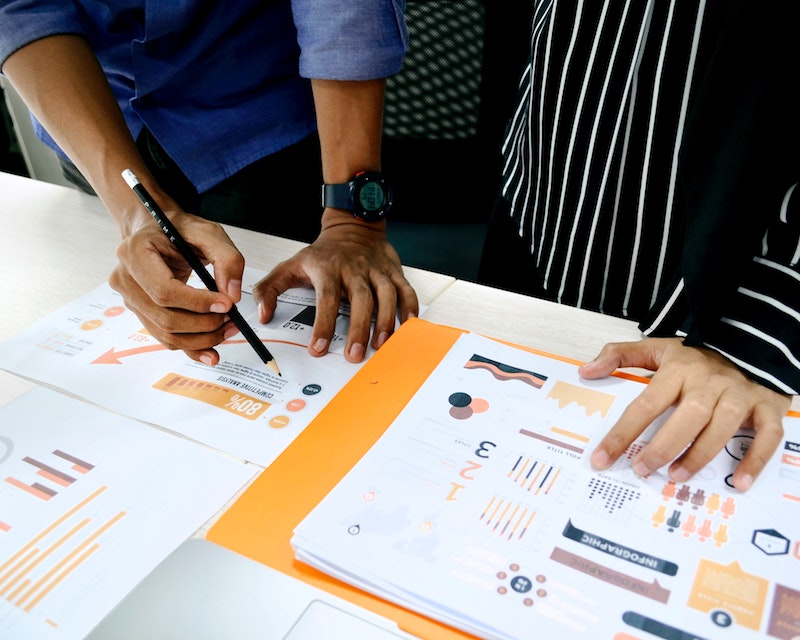
Findings and Resources
Learn more about research outcomes and findings from the study, including service access, immigration and child-related challenges and the criminalization of survivors.
How the Study Works
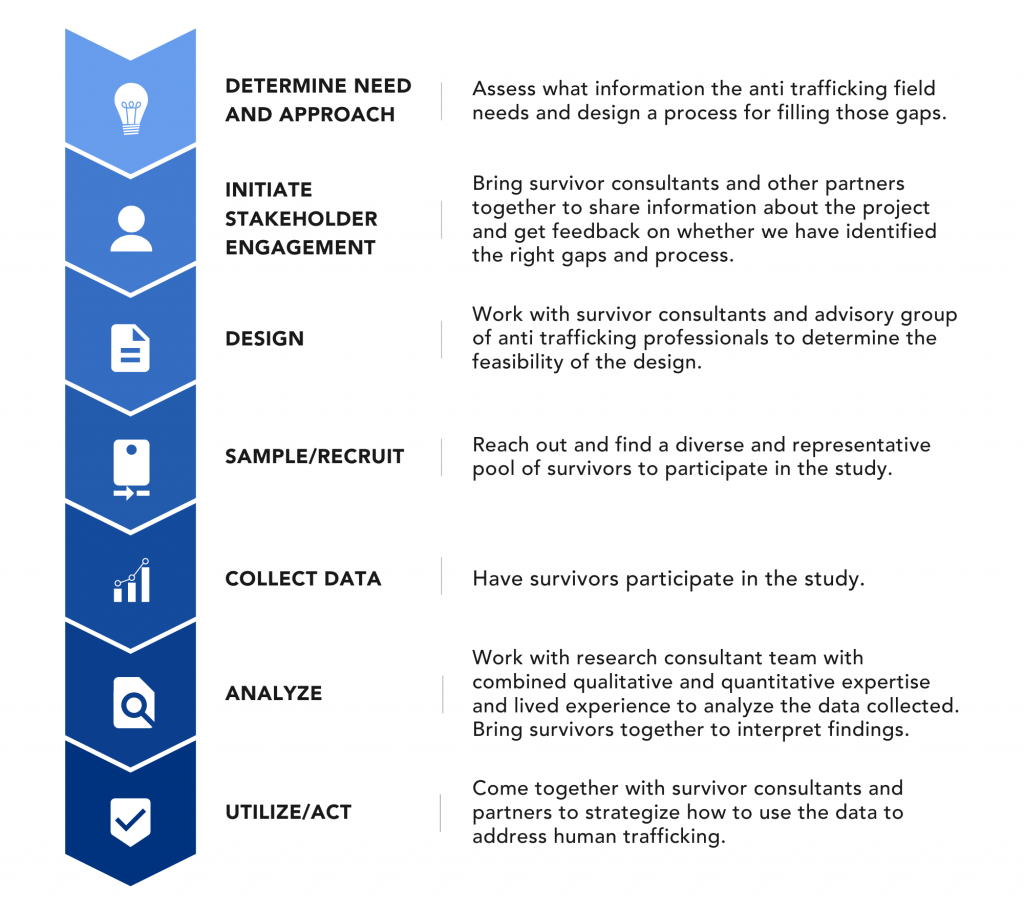
Frequently Asked Questions
The National Survivor Study is a scientifically rigorous tool that upends the traditional power dynamics between researchers and subjects in order to surface insights that enable evidence-based strategies to combat human trafficking in all its complexity and diversity.
The National Survivor Study incorporates survivor expertise into every aspect of the project, shifting from the conventional model of research done on a community to a research agenda directed by the affected community.
To tackle the complex systems that enable human trafficking, we need to understand how human trafficking actually works – not just how we think it works.
The data that exists now is largely either anecdotal, or collected as a by-product of other work, such as serving survivors and prosecuting traffickers. This leads to biases in the results, which can in turn lead to programs and policies that don’t represent the complexity and diversity of human trafficking experiences and survivors.
The single best source for high-quality data, information and insights are survivors themselves, acting as full partners in the endeavor, from determining what information matters, to providing it purposefully, and voluntarily. By intentionally engaging stakeholders through the entire process, we ensure we are asking the most relevant questions for anti trafficking, broaden the diversity of survivor participation and thereby improve the validity of the data.
Yes, absolutely. Polaris’s data set – the largest known to exist on trafficking in the United States – stems from work on more than 60,000 cases of human trafficking. As such, it serves as a vital baseline for understanding how this human rights violation manifests in real-time by showing us trends and changes at a larger scale. But as we have always made clear, data collection is secondary to the mission of the Trafficking Hotline. The NSS will add an additional layer of value and allow us to dig deeper by addressing the limitations inherent in collecting data as a secondary process. Specifically, the NSS process will:
- Allow for data collection that is purposefully driven by survivors
- Reflect input from survivors who may not have known about or chosen to utilize the Trafficking Hotline at the time of their trafficking.
- Allow for directed questioning that may not be appropriate in the context of the work of the Trafficking Hotline – which only collects data as necessary to provide appropriate support and assistance.
Working with survivors and other partners, Polaris will analyze the data, share it with other stakeholders, and apply what we learn to our long-term strategy designed to fundamentally reduce the amount of trafficking by reforming – and in some cases entirely upending – the systems that allow it to thrive – poverty, discrimination, lack of worker and immigration protections, failed social safety nets – to name but a few.
Every step of the way, diverse survivor communities will be engaged through informational and listening sessions, paid consultancies, and compensated research participation. Survivors have developed and are leading the implementation of the stakeholder engagement plan that informs these efforts.
In short, it’s power shifting. Our goal is to flip disparate power dynamics between survivors and the research process by incorporating survivor leadership, insight, and influence throughout all phases of the study. In creating opportunities for meaningful, compensated collaboration, the project will benefit survivors economically and professionally. More importantly, survivor voices, perspectives, and priorities will be the foundation of the study.
The NSS research team is a group of more than 10 individuals with a range of expertise in different methodologies and lived experience, including lived trafficking experience, hard to reach population sampling expertise, migrant worker and social equity experience, survivor policy advocacy, and community based participatory research experience. The NSS Community Advisory Group (CAG) complements the functions of the core research team and was formed in adherence to the NSS principles of community engagement throughout the research process, as well as our commitment to diversity, equity, and inclusion. The CAG is made of up diverse individuals with both labor and sex trafficking lived experience. The CAG meets monthly to give meaningful, substantive input into all phases of the study, from design to implementation. If you are a survivor and are interested in learning more about the CAG, please contact us at LIDS@polarisproject.org.
Participants will have will have three options to receive compensation:
If you have questions about these options or would like to learn more about compensation? Contact us at LIDS@polarisproject.org.
The National Survivor Study has received ethical approval from the BRANY Institutional Review Board. The study has also received Certificate of Confidentiality (CoC) through the National Institutes of Health. The certificate protects the privacy of research participants by prohibiting disclosure of identifiable, sensitive information to anyone not connected to the research team.
If you have a concern and would like to file a grievance complaint, please call 888-693-1576 to make a report. When you call, you will be prompted to leave a voice message with your contact information. After you call, our Sr. Advisor on Survivor Engagement will contact you to take the report. The Sr. Advisor on Survivor Engagement will then forward your report to the National Survivor Study Community Advisory Group (CAG).
Individuals are also welcome to file a report directly to the BRANY Institutional Review Board (IRB) instead of the NSS grievance line. To file a report with BRANY IRB, click here.
Additional Resources
Consent Form
This form must be completed to participate in the study. Read and review the form online or contact us at 1-888-693-1454 or lids@polarisproject.org.
Fact Sheet
Additional information about the goals and the guiding principles of the National Survivor Study.
Special thanks to the partners who have contributed funding support for the National Survivor Study.




